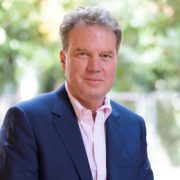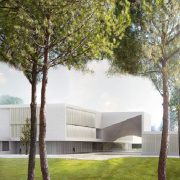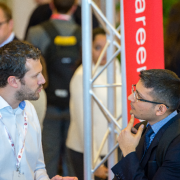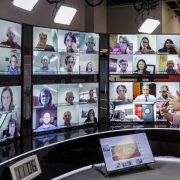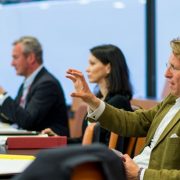Barcelona June 3 2019. The Financial Times has today ranked IESE Business School best in the world for executive education for a record-breaking fifth straight year. In this year’s ranking, IESE was particularly praised for its ability to provide new skills and learning to executives, the emphasis the school places on clients’ and participants’ needs, its outstanding faculty, and the follow-up given to participants.
Mireia Rius, Associate Dean of Executive Education and member of the Executive Committee at IESE, says: “We are enormously proud to reach this historic milestone, as it shows the confidence placed in us by our alumni, participants and corporate clients. It is a testament to IESE´s proven track-record in delivering outstanding programs that reflect the research-based thought leadership of our faculty and our ability to offer highly personalized programs focused on the personal and professional development needs of today´s executives, entrepreneurs and companies.”
Rius says this is especially important as the world is moving fast and new types of leadership skills and capabilities are needed if organizations want to thrive in today´s business context. “At IESE we draw upon the rich intellectual capital of our faculty and a range of innovative teaching methodologies (whether online, face-to-face or blended) to craft programs that can achieve this,” she says.
The 2019 FT Executive Education ranking, released today, analyzes two types of programs for executives: custom programs (courses that are tailor-made for specific companies) and open-enrollment programs (open to executives from any company). The FT produces separate rankings for custom and open programs, and then produces an overall rating for all of executive education, based on the data collected for the two rankings. As well as coming first overall in the combined ranking, IESE also ranks first for custom programs, and sixth in open programs.
Regarding custom programs, IESE scored high marks across the board, placing in the top two spots in 11 of the 15 categories that the FT uses to rank programs. These include factors such as program preparation (where IESE stood out for its close interactions with clients and the ability to integrate cutting-edge research into its programs), the ability to impart new skills and learning through the program, the use of innovative teaching methods, as well as the diversity of its faculty and international reach.
Recent corporate clients include:Abertis, BBVA, BMW Group, Boehringer-Ingelheim, Caixabank, ENAGAS, Enterprise Ireland, ERSTE, GRUPO CORREOS, IDOM, NATURGY, Nissan, Oracle, Rijkzwaan, Schneider Electric, Shiseido, Telefonica, Traton UNDP, United Parcel Service, among others.
For open programs, participants also valued how IESE´s programs encouraged new ways of thinking, and equipped them with new skills and perspectives that are directly relevant to their work. In addition, they appreciated the follow-up provided by IESE once they were back in the workplace, including providing numerous further learning and networking opportunities. IESE´s internationality and strong alliances with top business schools, such as Harvard, Wharton and CEIBS, also drew praise, as they allow rich opportunities for networking and help foster an international mindset. Open Programs are taught from IESE´s campuses in Barcelona, Madrid, New York, Munich and Sao Paulo, among other locations around the world.
More than 5,000 participants take part annually in IESE´s custom programs around the globe. There are also more than 30 open enrollment programs offered each year by IESE at its various international campuses, as well as its more than 40 short focus programs.
The Financial Times ranking is based on survey responses from custom program clients and open program participants, combined with data provided by the business schools themselves across a number of different criteria.

